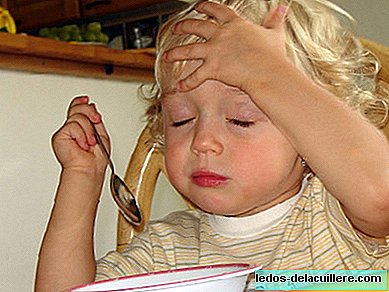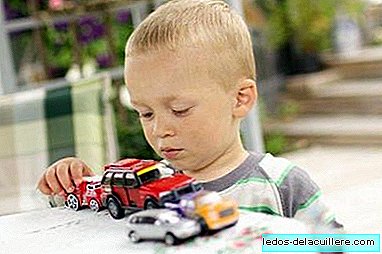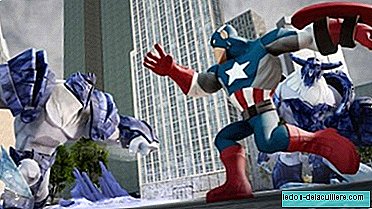
Accidents are an important cause of infant mortality in our country and falls account for 6% of them, according to WHO data.
Unfortunately falls are frequent even in infants. We trust that they are not able to turn on themselves and the day less thought voilà, they show you their new ability (in addition they usually do it at the precise moment when you turn a second to catch something).
Falls in children are the main reason for consultation in the emergency services. Those that require entry are usually those that occur from one level to another, that is, from the changing table, stairs, chairs, beds, bunk beds, windows, balconies and swings in the parks.
most of falls and bumps, even in the head, they tend to cover little gravity. However, there are times when the fall seems not to be serious (because of the height or because the child does not have an injury to the naked eye) and we do not know if it is convenient to go to a medical center or not. The reality is that the decision to go to the emergency room or not depends on several factors. It is recommended to evaluate the following to make the decision:
- The height from which they have fallen. It is not the same to fall from a small sofa than a changing table or a bunk. If we consider that the height is high enough to cause some damage, it is better to go to a medical center.
- How did it fall. It may be that it falls from a considerable height, but it is done in a way that does not cause any damage and it may be that it falls from a very small height and a good blow to the head.
- Pain. Once they suffer a fall, it is normal for them to feel pain from the blow. If the pain does not give up or seems to hurt too much, it is better to go to the emergency room to assess possible damage.
- Crying that never stops. As with pain, if the child does not stop crying or is excessively irritable.
- Swelling of some part of the body. As a result of the blow it is possible that inflammation of the area occurs. In this case it is convenient to be valued.
- Vomiting. Sometimes vomiting is caused by excessive crying. In case you make more than one vomit it can be cause for alert.
- Disorientation, confusion or loss of consciousness. In any of these cases it would be advisable to take it to the medical center.
- Progressive drowsiness or difficulty waking you up. After a blow, even on the head, children are usually irritable and sleepy. In principle, if there are no other symptoms that warn us of the possible severity the children can sleep and in fact it helps them recover. It is recommended to wake them up from time to time (every 2 hours, for example) to see that everything goes well.
- Outflow of fluid or blood from the ear or nostrils. It involves loss of blood or cerebrospinal fluid and therefore requires urgent medical attention.
- Any symptoms or signs that provide family concern. If despite all the assessment there are doubts about the need or not to go to the emergency room, it is best to go.
If finally the decision is to stay at home we must continue to be aware of all these symptoms for at least 24 hours, which is when they usually appear.
We will apply ice (wrapped in a rag) in the area of the blow to calm the pain and prevent inflammation. As ice usually bothers them, we can pause.
As always, prevention is better than cure. It is very important to never leave them alone on elevated surfaces as well as to use safety measures in the bed, windows and even avoid the use of walkers in young children to avoid any risk of accident or fall












